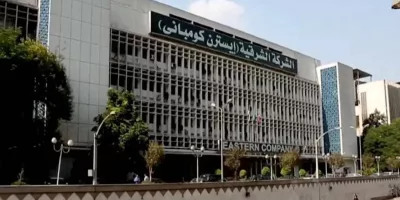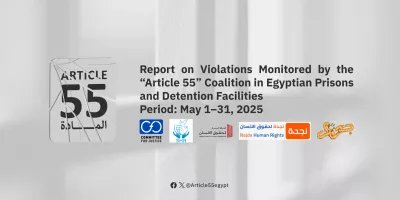To mark the 10th anniversary of the International Zero Discrimination Day, the Committee for Justice (CFJ) stated that it is crucial to address why the recommendations of the National Dialogue – in its session on combating discrimination – failed to consider numerous aspects of discrimination in Egyptian laws and policies. Furthermore, CFJ emphasized the need to clarify the status of these recommendations.
Background
On March 1, 2014, the United Nations marked for the first time the Zero Discrimination Day, aimed at uniting the world to celebrate diversity and reject discrimination in all its forms, including differences in income, gender, age, health status, profession, disability, sexual orientation, race, and social class. Every year, many people participate with songs, poems, ideas, and activities inspired by the “butterfly”, the symbol of the campaign. Participants also urge their governments to intensify efforts towards securing human rights and eradicating discrimination. The campaign was originally launched to spotlight the issue of discrimination faced by individuals living with HIV/AIDS.
In May 2023, the National Dialogue’s Human Rights and Public Liberties Committee in Egypt convened a session on eliminating discrimination, attended by a diverse group of society’s representatives. The discussion underscored the state’s obligation to uphold equality under the law as per international agreements, emphasizing rights to medical care and housing, protection from assault, and the importance of establishing a human rights and anti-discrimination commission as mandated by the 2014 Constitution. In addition, the session reviewed a draft law by the Ministry of Justice to address discrimination, pending parliamentary discussion.
Most contributions discussed the significant progress made towards achieving the principle of equality and equal opportunities, citing legislative and executive attention to protecting priority groups such as “women and people with disabilities” – a detail explicitly mentioned in the final recommendations. Additionally, the law ensuring the freedom to construct places of worship for Christians was noted, despite one participant mentioning that this law’s formulation contained elements of discrimination. One of the recommendations praised the state’s fair geographical distribution of development, which included North and South Sinai, Upper Egypt, and the Egyptian countryside. This was followed, five months later, by the arrest of Sheikh Saber Al-Sayyah, one of the most prominent figures in Sinai, for demanding the return of Egyptian citizens displaced from Rafah.
Although the final recommendations addressed gender-based discrimination against women directly or indirectly, the contributions did not touch upon the discriminatory laws and practices against women that the state should review, nor any detailed examination of personal status laws and penal code provisions that perpetuate discrimination. This includes not criminalizing marital rape, categorizing acts such as domestic violence and rape as disciplinary actions according to Islamic law, as well as reducing penalties for a number of crimes committed in
the name of honor according to the same law, in addition to Egypt’s reservations on the Convention on the Elimination of All Forms of Discrimination against Women (CEDAW).
The recommendations were submitted to the presidency since May 2023, yet no decisions about them have been announced up to the writing of this statement. The constitutionally mandated Anti-Discrimination Commission has not been established since 2014, nor have there been any announcements about developments regarding the anti-discrimination law project, which the Ministry of Justice is supposed to work on and submit to the Egyptian House of Representatives for discussion.
In light of the above, CFJ calls for adherence to transparency with the public and revelation of the outcomes the National Dialogue’s recommendations. It also seeks an explanation for the delays in effectively implementing these recommendations on the ground.






